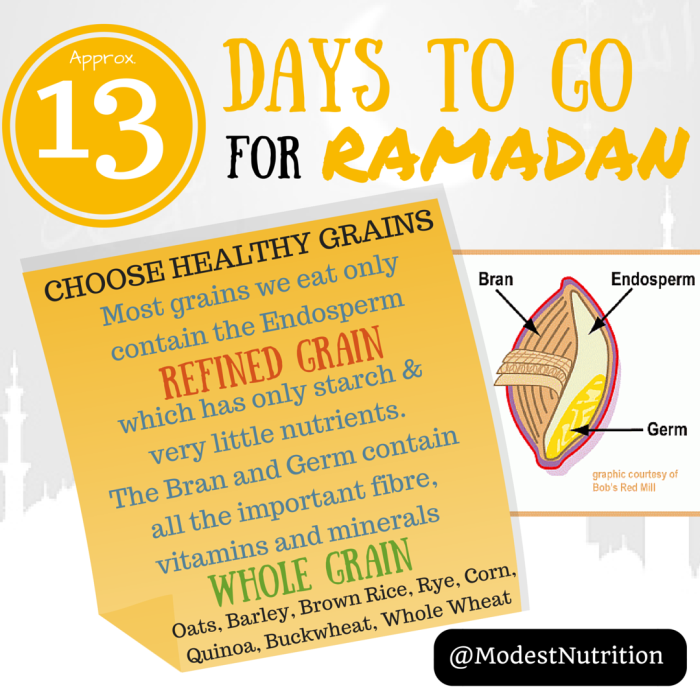The Majority of our diet is made up of grains – these are rice, breads, biscuits, pasta, cereal etc. These are seed of plants which are made up of three parts: the bran, the endosperm and the germ – all of which contain valuable nutrients that play an important role in your diet.

Unfortunately, in the last few decades we have shifted from using the entire grain to using only the “refined” and bleached version of the ancient grains. The reason behind this is that when the outer and inner layers of the seeds are removed the shelf-life of these grains becomes longer. So the food manufacturers started refining the grains so that these products can sit on the grocery store shelves for longer time before they turn bad. Since then we are eating breads and other grain products which are refined – which means that all the important nutrients and fibre are being removed, leaving us with only the starchy parts.
Do you usually feel tired a lot? This may be because the B-vitamins which come from these grains are removed. When we have more starch than other vitamins, minerals and fibre – we are losing out on the important ingredients that fuel our body with energy and boost our immune system.
Importance of “Whole”
If you think about it, the most common diseases we have today are Heart disease, Diabetes and Cancers, and each of them are effected by the lack of fibre in our diets. Without the fibre in our grains, we don’t feel full fast and we eat a lot more than our body needs. This also effects our blood sugar and can contribute to development of diabetes if maintained for a long time. So just by eating a lot of “refined” grains like rice, pasta, noodles, pastries and bread we are developing conditions like obesity, diabetes and other harmful diseases.
The best way to protect ourselves is to go back to our grandparents and great-grandparents’ way of eating. They probably ate a lot of hard looking breads – johwar and other grains that we have never tried or even heard of. Whole grains contain all three parts of the kernel. And gives more fibre and many naturally present nutrients. Those are the grains that can prevent us from developing many diseases. They help release the starch and sugars slowly into our body throughout the day so we do not feel hungry for a longer time. Some examples of current day whole grains are:
- Whole wheat (look for 100%),
- Brown rice
- Oats
- Barley
- Corn
- Wild rice
- Rye
- Quinoa
- Buckwheat
- Or any other whole grain that your great grandparents used to eat
How much? Eat at least 2 – 3 cups of whole grain products every day. And no more than 1 cup of refined grains. Make sure you measure by either a measuring cup or the size of a tennis ball (or woman’s fist).
Whenever you increase the fibre in your diet, do it slowly to avoid gas, bloating and diarrhea; and make sure to drink 2.2 L to 3 L (9 to 12 cups) of fluid each day. Fibre improves and slows digestion so it is great during long fasts. It’s always a good idea to include whole grain foods in your Sahoor.
Ways to get enough?
- Try experimenting your regular recipes by replacing the refined grains with a whole grain.
- Use whole grain whole wheat flour for making roti, buns, pita, naan, puri, parantha, dalia or bread.
- Use brown rice, red rice more than white rice
- Use millet and gram flour instead of all-purpose flour
- Include more oats, barley and quinoa in your recipes that require rice.
So tell me what can you do to get more whole grains?
<<Go back to Preparing for Ramadan
